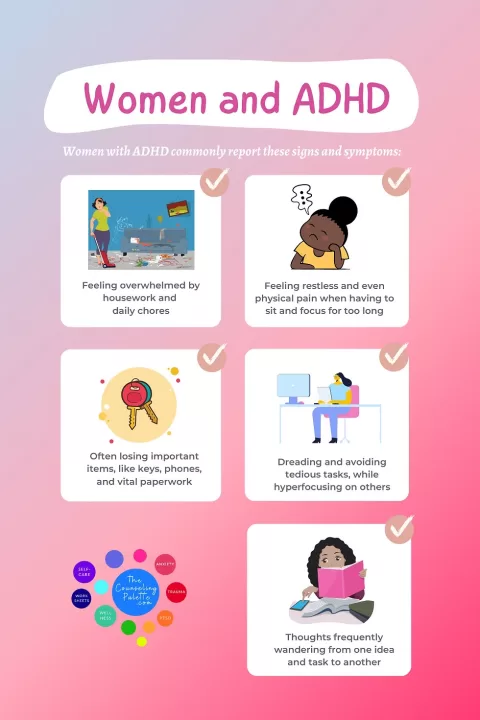Alzheimer’s research breakthroughs have sparked renewed hope in the quest for effective treatments against this debilitating disease. Recent advancements, including FDA approved Alzheimer’s drugs like lecanemab, represent a significant turning point in dementia research, providing new avenues to slow cognitive decline. Researchers at the IU School of Medicine have been at the forefront of these developments, tirelessly investigating strategies for Alzheimer’s disease treatment that can profoundly improve patient outcomes. As over 6.7 million Americans grapple with Alzheimer’s and related dementias, these breakthroughs are not just scientific achievements; they represent a lifeline for individuals and families affected by this condition. With ongoing studies and a robust network of experts, the future of Alzheimer’s research is more promising than ever.
Significant progress in understanding Alzheimer’s disease has emerged from innovative research initiatives, particularly at renowned institutions such as Indiana University. These breakthroughs are reshaping approaches to dementia and cognitive decline, offering fresh insights into potential treatments that can effectively manage symptoms and enhance quality of life. Efforts like clinical trials for drugs such as lecanemab, together with the collaborative work from specialists within the IU School of Medicine, are pivotal in advancing medical knowledge and therapeutic strategies. Furthermore, the emphasis on blood biomarker research aims to simplify early diagnosis, thereby facilitating timely interventions for those most at risk. The growing momentum in Alzheimer’s disease exploration signifies a critical period of discovery, promising to illuminate the complexities behind this devastating illness.
Significant Advances in Alzheimer’s Disease Treatment
Recent years have marked a notable shift in Alzheimer’s disease treatment, with the emergence of innovative drugs designed to slow the progression of cognitive decline. Notable among these is lecanemab, a drug that has shown significant promise in clinical trials. Its approval by the FDA has ignited new hope for the 6.7 million Americans battling Alzheimer’s disease. By targeting amyloid protein accumulation in the brain, lecanemab represents a transformative approach in dementia research, paving the way for future therapies that could enhance cognitive function.
The pivotal role played by institutions like the IU School of Medicine underscores the importance of continued Alzheimer’s research. With more than 100 experts dedicated to dementia studies and substantial NIH funding, researchers are not only focusing on treatment options like lecanemab but are also exploring biomarkers and blood tests that could lead to early detection. This comprehensive approach to Alzheimer’s disease treatment suggests that we are entering a new era in combating this debilitating condition.
IU School of Medicine’s Leading Role in Alzheimer’s Research
The IU School of Medicine has emerged as a frontrunner in Alzheimer’s research, fostering groundbreaking studies that could redefine how we approach Alzheimer’s and related disorders. With over $87 million in NIH funding, the institution is at the forefront of developing advanced therapies and diagnostic tools. Researchers, including Donna Wilcock and Jeff Dage, are exploring innovative blood tests that could yield critical insights into patient eligibility for therapies like lecanemab and donanemab, further enhancing the accessibility of cutting-edge treatments.
Moreover, IU’s collaborative approach, combining efforts with leading pharmaceutical companies like Eli Lilly, is a testament to the institution’s commitment to advancing Alzheimer’s research. Their participation in clinical trials for drugs such as donanemab evidences a robust infrastructure capable of supporting pivotal studies that aim to unravel the complexities of Alzheimer’s disease and develop more effective solutions.
The Impact of FDA Approval on Alzheimer’s Treatment
The traditional approval of the first disease-modifying Alzheimer’s drug, lecanemab, by the FDA has been celebrated as a watershed moment in the realm of Alzheimer’s research breakthroughs. This approval not only affirms the scientific community’s long-held aspirations for effective therapeutic interventions but also brings a renewed focus on the multifaceted nature of Alzheimer’s and the necessity for ongoing research.
The endorsement of lecanemab has instituted a ripple effect throughout the research landscape, encouraging investigators to delve deeper into understanding the pathology of Alzheimer’s. As an unprecedented step forward, it highlights the importance of innovative treatments and the need for further examination of the mechanisms behind the disease’s progression, setting the stage for additional breakthroughs in dementia research.
The Role of Biomarkers in Alzheimer’s Disease
Biomarkers are proving to be a critical component of Alzheimer’s disease research, with the potential to revolutionize patient diagnosis and treatment approaches. The IU School of Medicine is spearheading efforts to identify blood-based biomarkers that could enable early detection of Alzheimer’s, allowing patients to receive interventions like lecanemab sooner in the disease progression. This early intervention is key to significantly slowing cognitive decline and improving quality of life for those impacted by the disease.
Furthermore, ongoing studies will evaluate the efficacy of these biomarkers in facilitating patient screening and optimizing therapeutic strategies. As researchers unravel the complexities of Alzheimer’s pathology, the role of biomarkers is likely to expand, providing a more nuanced understanding of disease mechanisms that can inform future treatment paradigms.
Exploring Lecanemab: A New Hope in Alzheimer’s Therapy
Lecanemab, branded as Leqembi, represents an exciting development in Alzheimer’s treatment, specifically targeting amyloid plaque accumulation in the brain. Clinical trials specializing in this drug have yielded promising results, providing insights into how early treatment can enhance a patient’s independence. As reported by Dr. Jared Brosch, those treated with lecanemab in trials demonstrated an ability to maintain their functional capabilities over extended periods, emphasizing the drug’s potential impact on the lives of patients diagnosed with Alzheimer’s.
The careful administration of lecanemab represents a historical moment for Alzheimer’s therapy, positioning it as a frontrunner in FDA-approved Alzheimer’s drugs. As treatment strategies continue to evolve, lecanemab stands as a beacon of hope for patients and their families, symbolizing a shift in how the medical community addresses this debilitating disease.
IU’s Commitment to Global Alzheimer’s Research
The IU School of Medicine’s commitment to Alzheimer’s research extends beyond local efforts; it champions a global perspective on understanding the disease. This includes initiatives such as the National Centralized Repository for Alzheimer’s Disease and Related Dementias, which serves as an invaluable resource for researchers worldwide. By facilitating access to critical biological samples and promoting data-sharing, IU is fostering international collaboration in Alzheimer’s research aimed at uncovering new therapeutic avenues.
The institution’s recent partnerships with international research sites for the LEADS study demonstrate an ambition to gather diverse data, crucial for understanding the global impact of Alzheimer’s disease. By integrating findings from various populations, researchers aim to enhance our knowledge of the disease’s progression and develop tailored interventions that best serve affected communities worldwide.
Understanding ARIA: Challenges in New Alzheimer’s Drug Treatments
While the advent of drugs like lecanemab and donanemab brings renewed optimism, there are significant challenges to address, particularly the risks associated with amyloid-related imaging abnormalities (ARIA). As noted by leading researchers at IU, a segment of patients undergoing treatment with these drugs may experience ARIA, which can manifest as brain bleeds or swelling. This development highlights the need for continuous monitoring and further research to ensure the safety of new Alzheimer’s therapies.
Investigators at IU, under the guidance of Dr. Donna Wilcock, are diving deeper into the factors contributing to ARIA. Understanding the underlying causes of these abnormal responses will be critical in developing strategies to mitigate risks while maximizing treatment benefits. This research is vital as it aims not only to enhance the safety profiles of Alzheimer’s therapies but also to expand treatment eligibility for broader patient demographics.
International Collaborations in Alzheimer’s Disease Research
The IU School of Medicine recognizes the importance of international collaboration in tackling the complexities of Alzheimer’s disease. By fostering partnerships with institutions across the globe, features like international LEADS exemplify a commitment to understanding the disease comprehensively. Researchers are keen to study why early-onset Alzheimer’s presents uniquely in different populations, sharing findings from various countries to strengthen the overall understanding of the disease.
Through these collaborations, scientists aim to create a rich repository of data that can inform future studies and treatment protocols. As noted by Dr. Liana Apostolova, academic partnerships are essential in enhancing the collective research output, allowing for innovative ideas to flourish and potentially leading to breakthroughs in global Alzheimer’s disease treatment approaches.
The Future of Alzheimer’s Research at IU
The future of Alzheimer’s research at the IU School of Medicine looks promising, with an array of initiatives underway aimed at fighting the disease on multiple fronts. Researchers are not only expanding drug development but are also investigating the genetic, biological, and environmental factors contributing to Alzheimer’s. The focus on multidimensional studies will enrich the scientific community’s understanding of this complex disorder and support the evolution of personalized treatment strategies.
As the IU School of Medicine continues to lead transformative research, it is poised to play an integral role in shaping the future of Alzheimer’s disease treatment. With mounting support from the NIH and collaborations with industry leaders and academic institutions, IU’s commitment to innovative research holds the promise of delivering significant advancements in Alzheimer’s care, which is essential for the millions affected by this progressive disease.
Frequently Asked Questions
What are the recent Alzheimer’s research breakthroughs related to drug treatments like lecanemab?
Recent breakthroughs in Alzheimer’s research include the approval of the drug lecanemab, marketed as Leqembi, which effectively removes amyloid protein plaques in the brain. This is a significant advancement in Alzheimer’s disease treatment as it can slow cognitive decline if administered early in the disease progression. The FDA’s approval of lecanemab marks a pivotal moment in dementia research, highlighting the progress made by institutions like the IU School of Medicine.
How does lecanemab compare with other Alzheimer’s disease treatments in research?
Lecanemab is one of the first FDA-approved Alzheimer’s drugs that targets amyloid plaques. Compared to previous treatments, it shows promise in significantly slowing decline in patients diagnosed with early-stage Alzheimer’s. Another breakthrough treatment, donanemab, marketed as Kisunla, also received FDA approval and presents similar benefits. The combination of these drugs signals a new era in dementia research where disease-modifying therapies are becoming accessible.
What role does the IU School of Medicine play in Alzheimer’s disease research?
The IU School of Medicine is at the forefront of Alzheimer’s research, with over 100 experts dedicated to dementia studies and significant National Institutes of Health funding. The institution has been pivotal in the clinical trials for treatments such as lecanemab and donanemab, leading innovative efforts to develop a blood test for early Alzheimer’s diagnosis. Their collaborative research aims to advance Alzheimer’s disease treatment and improve patient outcomes significantly.
What challenges remain in Alzheimer’s research despite recent breakthroughs?
Despite breakthroughs like lecanemab and donanemab, challenges remain, particularly regarding the multifactorial causes of Alzheimer’s and managing side effects such as amyloid-related imaging abnormalities (ARIA). There is ongoing research to identify patients at risk for ARIA and develop adjunct therapies to mitigate these risks, ensuring broader access to new drug treatments.
What impact does funding have on Alzheimer’s research breakthroughs at IU School of Medicine?
Funding plays a crucial role in facilitating Alzheimer’s research breakthroughs at the IU School of Medicine. With $87 million in NIH funding for 2023, researchers can explore innovative treatment options, conduct extensive clinical trials, and collaborate with other institutions. This robust funding supports groundbreaking studies and helps attract top talent in dementia research, enhancing the potential for impactful discoveries.
How does the collaboration between IU School of Medicine and other entities advance Alzheimer’s treatments?
Collaboration between the IU School of Medicine and pharmaceutical companies like Eli Lilly, as well as academic partners, accelerates advancements in Alzheimer’s treatments. This partnership enhances drug development initiatives, broadens research capabilities, and facilitates access to essential resources, ultimately leading to more effective therapies for Alzheimer’s disease.
What are the long-term benefits of early treatment with lecanemab in Alzheimer’s patients?
Early treatment with lecanemab has shown promising long-term benefits, including the potential to ‘freeze’ cognitive decline, allowing patients to maintain their independence for longer periods. Clinical trials indicated that over 70% of participants continued to live independently after 1.5 years of treatment, demonstrating lecanemab’s significant impact on enhancing the quality of life for early-stage Alzheimer’s patients.
What is the significance of the blood test for Alzheimer’s disease being developed at IU School of Medicine?
The development of a blood test for Alzheimer’s disease at the IU School of Medicine is significant as it promises to simplify early diagnosis and eligibility for new treatments like lecanemab and donanemab. Early detection is crucial for the effectiveness of these therapies, and a blood test could make screening more accessible, potentially transforming the landscape of Alzheimer’s disease management.
How important are international studies in the context of Alzheimer’s research breakthroughs?
International studies are vital to Alzheimer’s research breakthroughs as they provide diverse data on disease progression across different populations. Initiatives such as the Longitudinal Early-Onset Alzheimer’s Disease Study (LEADS) are expanding globally to integrate data from multiple countries, enhancing understanding of the disease and improving treatment strategies through a comprehensive global approach.
What does the future hold for Alzheimer’s disease treatments following recent breakthroughs?
The future of Alzheimer’s disease treatments is promising following recent breakthroughs like lecanemab and donanemab. Ongoing research aims to develop safer therapies, increase accessibility, and potentially discover new treatment methodologies. Experts believe that the landscape of Alzheimer’s treatment will continue to evolve rapidly, leading to further innovations and improved outcomes for millions affected by the disease.
| Key Points |
|---|
| For decades, effective Alzheimer’s treatments were elusive, but recent breakthroughs with new drugs have emerged. |
| Indiana University has been pivotal in advancing Alzheimer’s research, attracting funding and notable interest from figures like Bill Gates. |
| The FDA approved the first disease-modifying drug for Alzheimer’s in 2023, offering hope for effective treatment. |
| Lecanemab and Donanemab are among the new drugs shown to slow cognitive decline in early-stage Alzheimer’s patients. |
| Research at IU prioritizes identifying early-stage Alzheimer’s patients with an innovative blood test for eligibility. |
| The collaboration between IU and Lilly aims to develop therapies targeting distinct brain proteins linked to Alzheimer’s. |
| International studies, like the LEADS project, investigate younger populations to understand faster disease progression. |
| Efforts are underway to mitigate side effects of new drugs, making treatments safer for a broader patient demographic. |
Summary
Alzheimer’s research breakthroughs have recently shifted the paradigm in tackling the disease, providing newfound hope for millions. With innovative treatments like Lecanemab and Donanemab receiving FDA approval, researchers at Indiana University are leading the way in developing effective therapies that can significantly slow cognitive decline when detected early. Their work, alongside promising blood tests for easier patient evaluation, puts them at the forefront of Alzheimer’s research, paving the way for a future where early intervention becomes standard practice. The potential to expand these breakthroughs internationally could change the course of Alzheimer’s treatment forever.
The content provided on this blog (e.g., symptom descriptions, health tips, or general advice) is for informational purposes only and is not a substitute for professional medical advice, diagnosis, or treatment. Always seek the guidance of your physician or other qualified healthcare provider with any questions you may have regarding a medical condition. Never disregard professional medical advice or delay seeking it because of something you have read on this website. If you believe you may have a medical emergency, call your doctor or emergency services immediately. Reliance on any information provided by this blog is solely at your own risk.







